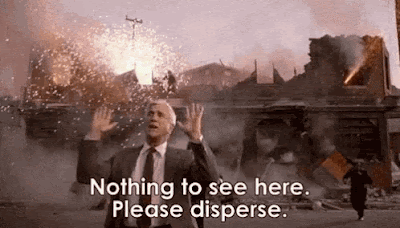The latest reforms are partly necessary because a previous attempt to ban recreational vaping by the Australian government proved a flop. Unlike in the UK and New Zealand, vapes may not be sold to anyone under 18 [Eh? The UK and NZ both ban the sale to minors - CJS]. Smoking [sic] e-cigarettes has been illegal without a prescription since 2021, punishable by hefty fines or a prison sentence. Only pharmacists and licensed retailers are legally allowed to sell them to patients trying to give up smoking. Beyond this, selling nicotine vapes is a criminal offence.
But the laws have been largely ignored by customers and retailers alike, while fuelling a booming black market. Millions of illegal e-cigarettes are flooding into Australia, mostly from China, and are sold in shops across the country or online. Manufacturers and retailers simply relabel vapes, falsely claiming they are nicotine-free.
As of this month, the government has banned the importation of nicotine-free vapes. The early indications are not good.
Mark Butler, the health minister, who has previously described vaping as the biggest behavioural problem in Australian primary schools, called the crackdown “world-leading”. He added: “If you vape, this new year make it your resolution to quit.”
Those gathered in the Perth shop did not appear to heeding this advice. “I didn’t know about any ban,” a member of staff said after selling a A$25 (£13) pineapple ice vape to a customer.
Down the road, the manager of another general store selling vapes, as well as an array of bongs, said he was not worried. “Maybe, maybe not,” he shrugged, when asked whether he intended to obey the new law.
... The Australian Border Force (ABF) believes organised crime groups are behind three quarters of the illicit vapes and tobacco imported. Rohan Pike, a police officer for 25 years who established the ABF’s tobacco strike team to target smuggling, believes the prescription-only model for vaping will drive sales further underground. “The laws introduced in 2021 were a complete farce and these latest ones are also largely unenforceable,” he said. “It’s naive to think we’ll be able to stop vapes flooding in across the border.”
The latest restrictions have been opposed by the tobacco industry — which owns some of the popular e-cigarette brands — and politicians, spearheaded by the right-wing National Party. They argue that adults should have the right to choose whether they vape or not and have called for a tougher licensing regime to ensure vapes are sold responsibly and kept away from children.
Freeman said she had heard all these arguments before. “We always see these black market claims when we take something off the market that’s highly addictive and incredibly profitable. Is cocaine sold at [supermarkets] to 13-year-olds? No. Nor is it in sparkly packages and fruit flavours.”


No comments:
Post a Comment